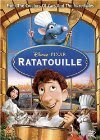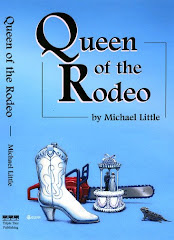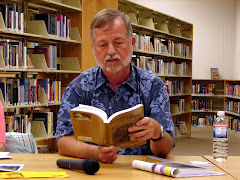Here’s a second question that helps us understand how readers and writers connect. Last week we looked at the connecting power of humor and laughter (“if you tickle us, do we not laugh?”). Now it’s time to share a little pain.
Shylock’s speech in Act 3, Scene 1 of The Merchant of Venice asks, “If you prick us, do we not bleed? if you tickle us, do we not laugh? if you poison us, do we not die?” Shakespeare’s topic in this speech is the common humanity of Jews and Christians, but it applies to other groups as well.
Let’s leave the poison and dying aside for now, but think for a moment about one person drawing a little blood from another. “You may feel a little prick,” the lab technician warns us, or the nurse giving us an injection. The word prick comes from an Old English word prica. (Because Shakespeare and the Elizabethans loved naughty double entendres, you have to be on guard whenever the word prick appears in Shakespeare's plays and sonnets, but at the moment we're not talking about laughter.)
To prick something is to puncture it lightly. That’s what the lab tech or nurse does as we sit and watch (or look away). We feel momentary pain. If you prick us, do we not bleed? Yes, if we’re human.
As readers, of course, we don’t expect to be reading along in a short story or novel and suddenly feel pain and begin losing blood because of something the writer has written. But when we are reading about characters in pain we often do feel their pain. The writer has drawn characters we care about, then has shown these characters in pain, and so we shed a little emotional blood. We suffer along with the characters, and I suspect along with the writer as well.
I have trouble remembering times when I’ve given my characters physical pain, or made them bleed. As for emotional pain and suffering, oh yeah I can do that. Here’s one formula—give your hero or heroine (or both) a taste of romance, let them begin to fall in love, and then bring in the trouble. Keep them apart, overwhelm them with distractions and misunderstandings, begin to break their hearts. If it’s comedy, we’re heading for a happy ending, but first let’s prick them and watch them bleed for 250 pages. Ah, that’s the ticket.
 Ready for a surprise test? Of course not, but we’re writing about pain today. Here’s your test. Name your favorite fiction writer (only one). Then select your favorite book by that writer and hold it in your hand. Now close your eyes. When you open your eyes you’ll find yourself on a desert island. Are you alone? Of course not. You have your favorite book by your favorite writer. You’ve been wanting to reread it anyway. Here’s your chance. Don’t worry about food, you’ll love the tropical fruit and plentiful seafood on your island, but your only companion is your favorite writer. Open the book and begin to read. Prepare to laugh. Prepare to bleed. When you finish the book, just give us a call and we’ll bring you back from the island.
Ready for a surprise test? Of course not, but we’re writing about pain today. Here’s your test. Name your favorite fiction writer (only one). Then select your favorite book by that writer and hold it in your hand. Now close your eyes. When you open your eyes you’ll find yourself on a desert island. Are you alone? Of course not. You have your favorite book by your favorite writer. You’ve been wanting to reread it anyway. Here’s your chance. Don’t worry about food, you’ll love the tropical fruit and plentiful seafood on your island, but your only companion is your favorite writer. Open the book and begin to read. Prepare to laugh. Prepare to bleed. When you finish the book, just give us a call and we’ll bring you back from the island.
If sharing laughter is one of life’s great pleasures, and connects reader with writer, what is sharing pain? We can see the sharing of pain, the showing of compassion, as further evidence of our humanity. The pain does not give us pleasure. I’m not afraid of needles, but I don’t go out of my way for them (Hey, somebody want to give me a shot? I haven’t had one all day).
Pain is part of life, whether it’s physical or emotional pain. We should be willing to share that just as we share laughter. It makes us human, and keeps us human. What is wrong with someone who never laughs and never cries? Something missing there.
As readers we open a book, begin a new story, on board with the writer. We bring our humanity to the story. The writer depends on that! “If you tickle us, do we not laugh?” “If you prick us, do we not bleed?” These are rhetorical questions. We all know the answers.














